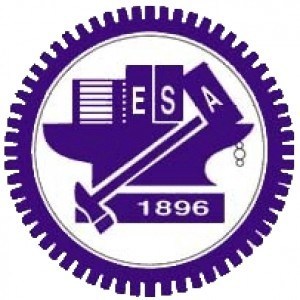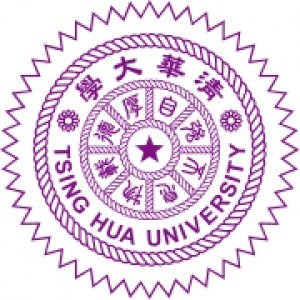Photos of university
The Department of Electrical Engineering and Computer Science at National Chiao Tung University offers a comprehensive and innovative undergraduate program designed to equip students with a solid foundation in both electrical engineering and computer science. Our curriculum integrates fundamental theories with practical applications, preparing students to address the complex challenges of modern technology industries. Students will explore a wide range of topics including circuit theory, digital logic, signal processing, communication systems, software engineering, artificial intelligence, and data science. The program emphasizes hands-on training through laboratory work, projects, and internships, fostering problem-solving skills and technical proficiency. Additionally, students have opportunities to engage in interdisciplinary research, collaborate with academia and industry partners, and participate in cutting-edge technological development. The program aims to cultivate creative and analytical thinking, preparing graduates for careers in fields such as telecommunications, embedded systems, robotics, cybersecurity, data analysis, and software development. With access to state-of-the-art laboratories and resources, students can work on innovative projects that align with industry needs and societal advancements. The department also encourages international perspectives and offers various exchange programs, enhancing students’ global outlook and collaborative abilities. Graduates from this program are well-positioned to pursue advanced degrees or enter the workforce as skilled engineers and computer scientists. Overall, the program at National Chiao Tung University is committed to fostering engineering excellence, innovation, and leadership in the rapidly evolving fields of electrical engineering and computer science.
- Complete 18 credits (minimum) of professional courses from the Colleges of Electrical and Computer Engineering (ECE) or Computer Science (CS).
- Students get direct admission into doctoral program should complete 30 credits of technical courses which should contain at least 18 credits of technical courses from the Colleges of Electrical and Computer Engineering (ECE) or Computer Science (CS).
- Complete 2 courses or at least 4 credits of Mandarin Chinese courses. Students who pass Chinese proficiency tests or obtain the master degree from EECS International Graduate Program may waive up to2 courses or 4 credits.
- Doctoral students in their first and second years of study must take Seminar courses every semester (the credits do not count toward graduation requirements). Students must take and pass 4 Seminars (minimum) before graduation.
- Dissertation
Requirements
- International students who have earned or will earn a master's degree at accredited universities in Taiwan or other countries are eligible to be considered for admission to the Master Programs offered by the Electrical and Computer Engineering (ECE) and the Computer Science (CS) Colleges at NCTU.
- The official diploma must be translated into either English or Chinese when the original one is not issued in either language
- One copy of official transcript (with grades of every semester and explanation of grading system)
- Translation of official transcript (if applicable)
- Two letters of recommendation
- Passport or other proof of Nationality
- Alien Resident Certificate - ARC (if any)
- Confidential Financial Statement
- TOEFL PBT 500 / CBT 173 / iBT 73, TOEIC 650 or IELTS 5.5 (academic) unless specified otherwise by some department/institutes.
- Proof of Chinese proficiency (recommended)
Scholarships
- NCTU International Scholarship
- Taiwan Scholarships
The Department of Electrical and Computer Engineering at National Chiao Tung University offers a comprehensive undergraduate and graduate program designed to equip students with the fundamental knowledge and practical skills necessary to excel in the fields of electrical engineering and computer science. The curriculum provides a blend of theoretical courses and hands-on laboratory experiences, emphasizing areas such as circuit design, digital systems, embedded systems, computer architecture, communication systems, signal processing, and software development. The mission of the program is to nurture innovative engineers capable of addressing the challenges of modern technology through a multidisciplinary approach that integrates hardware and software technologies.
Students in this program gain exposure to the latest advancements in areas such as semiconductor technology, artificial intelligence, machine learning, Internet of Things (IoT), cybersecurity, and data analytics. The program encourages research and development, enabling students to participate in cutting-edge projects and collaborations with industry leaders. With access to state-of-the-art laboratories and research facilities, students are able to perform advanced experiments and develop prototypes that align with current technological trends.
The faculty comprises distinguished professors and researchers who are actively involved in international research projects and published extensively in reputable journals. The program also emphasizes the importance of soft skills, including teamwork, communication, and project management, which are vital for professional success. Graduates of the program typically pursue careers in a variety of sectors such as electronics manufacturing, telecommunications, information technology, automotive, and aerospace industries. Many also continue their studies at prestigious graduate schools or engage in entrepreneurship.
International students are welcomed into the program through various scholarship opportunities and exchange programs, fostering a diverse learning environment. The university's strategic location in Hsinchu, Taiwan—known as the Silicon Valley of Asia—offers students unique opportunities for internships, industry collaborations, and employment after graduation. Overall, the Electrical and Computer Engineering program at National Chiao Tung University aims to cultivate talented engineers and researchers who will lead technological innovation in Taiwan and globally.


